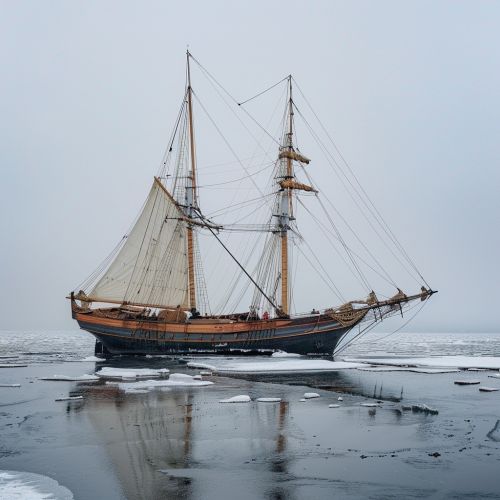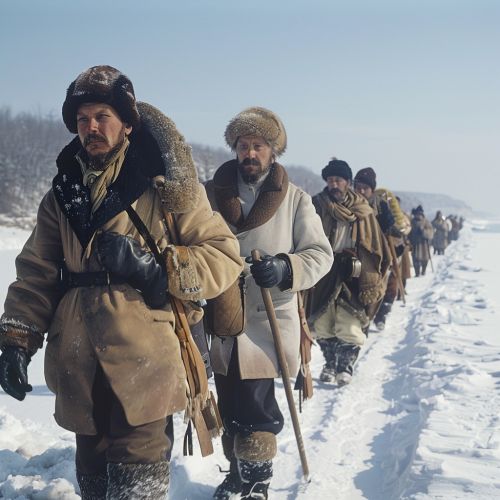George Nares
Early Life
George Nares was born on April 24, 1831, in Aberdeen, Scotland. His father, Commander William Henry Nares, was a decorated officer in the Royal Navy, and his mother, Elizabeth Rebecca Gould, was the daughter of a prominent local businessman. Nares attended the Royal Naval School in New Cross, London, where he excelled in mathematics and navigation.
Nares joined the Royal Navy in 1845 at the age of 14. He served on several ships, including the HMS 'Resolute', where he participated in the search for the lost Franklin Expedition. His experiences in the Arctic would later prove invaluable in his own polar explorations.


In 1852, Nares was promoted to lieutenant and assigned to the HMS 'Herald', where he conducted hydrographic surveys in the Pacific Ocean. During this time, he developed a reputation for meticulousness and accuracy, which would serve him well in his later career.
In 1865, Nares was promoted to captain and given command of the HMS 'Newport', where he conducted further surveys in the Mediterranean and Red Sea. His work was recognized by the Royal Geographical Society, which awarded him the Murchison Award in 1875.
Polar Exploration
In 1875, Nares was selected to lead the British Arctic Expedition, a government-funded mission to reach the North Pole. The expedition, which consisted of two ships, the HMS 'Alert' and the HMS 'Discovery', set out from Portsmouth in May 1875.
The expedition faced numerous challenges, including severe weather, treacherous ice conditions, and scurvy among the crew. Despite these obstacles, Nares and his team were able to achieve several significant milestones, including the discovery of the Nares Strait and the furthest northward penetration by ship at that time.


Nares' leadership during the expedition was widely praised, and he was knighted by Queen Victoria upon his return in 1876. However, his decision to push on despite the risks to his crew was also criticized, and the expedition's high casualty rate led to changes in the planning and execution of future polar expeditions.
Later Life and Legacy
After his return from the Arctic, Nares continued to serve in the Royal Navy, eventually rising to the rank of admiral. He also served as a hydrographer to the Admiralty, contributing to the development of modern oceanography.
Nares retired from the navy in 1892 and spent his later years writing and lecturing on his experiences in the Arctic. He died on January 15, 1915, in Kingston upon Thames, England.
Today, Nares is remembered as a pioneering figure in polar exploration. His contributions to our understanding of the Arctic and his advancements in navigation and surveying techniques have had a lasting impact on the field of exploration.
